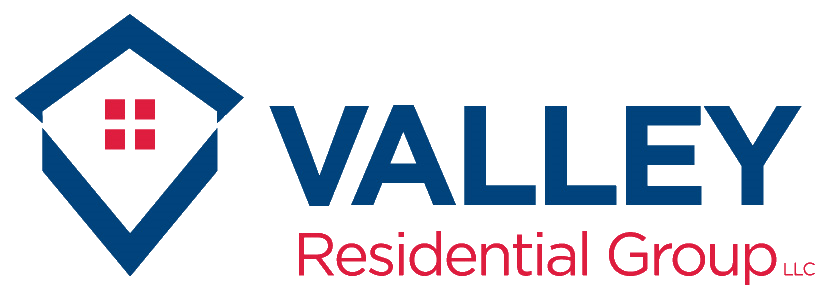
Need to sell a home with a reverse mortgage? Valley Residential Group LLC can guide you through each step, making the process clear and manageable.
Understanding Reverse Mortgages: Key Benefits and Risks
People in Connecticut who want to sell their homes and take advantage of the wealth they’ve built up over the years may find reverse mortgages to be very useful. Before you go ahead with a reverse mortgage, you need to know the main pros and cons of the loan.
A reverse mortgage is helpful because it lets people aged 62 and up turn some of their home equity into cash without having to sell the house right away or make monthly mortgage payments. For people on fixed incomes, this can give them a lot of financial freedom.
However, it’s important to be aware of the risks that might be involved. The fees and interest rates for reverse mortgages are usually higher than those for regular loans. This can slowly eat away at the homeowner’s leftover equity.
Moreover, if the homeowner chooses to vacate the property or dies, the loan is due, which could mean selling the home if no other funds are available. If buyers in Connecticut are thinking about this option, they need to carefully consider these points and talk to financial advisors who know the local real estate market and the rules about reverse mortgages.
Evaluating the Pros and Cons of Reverse Mortgages for Seniors
Seniors need to weigh the advantages and downsides before selling a Connecticut property with a reverse mortgage. Reverse mortgages can be quite helpful for homeowners 62 and older since they can get more money by using the equity in their homes.
This financial instrument lets the elderly stay in their homes while getting monthly payments or a lump sum. This can be quite helpful for people who have fixed incomes. But selling a home with a reverse mortgage means you need to know about some complicated things.
When selling the home, one important thing to think about is that the loan balance must be paid back. This includes both the amount borrowed and the interest that has built up. Also, whether the housing market goes up or down, there may be less equity left after paying off the reverse mortgage, which could affect the sale’s earnings.
Homeowners should also think about how these things would affect their descendants’ plans for inheriting their property. This is because the money left over after paying off the reverse mortgage loan will decide what goes to the beneficiaries. Seniors who want to sell their Connecticut home under these kinds of financial arrangements need to think about these things in order to make smart choices.
Differences Between Conventional Loans and Reverse Mortgages in Real Estate Transactions

When selling a Connecticut property, it’s important to know the differences between conventional loans and reverse mortgages in the world of real estate. Borrowers with continuous income can afford conventional loans since they need monthly payments that slowly pay down the principal and interest over time.
On the other hand, a reverse mortgage lets homeowners over the age of 62 turn some of their home equity into cash without having to pay it back right away. This can be helpful for people who want to stay in their houses longer while still getting money. Because of this unique aspect of reverse mortgages, sellers need to think about how it will affect the financing possibilities of potential buyers.
When you get a regular loan, your credit score and income must be checked. But with a reverse mortgage, the lender is more interested in the homeowner’s equity and the property’s worth. Sellers should know that houses that have reverse mortgages on them may not be as appealing to potential purchasers as those that are funded in more traditional ways.
Sellers can better market their Connecticut homes by knowing these differences. This makes sure that they meet the needs of buyers who are considering either financing option.
Legal Considerations for Selling a Home with a Reverse Mortgage in Connecticut
If you want to sell your home for cash in Connecticut using a reverse mortgage, it’s essential to understand the legal aspects of the process. Homeowners should carefully review the loan agreement, as the reverse mortgage typically must be repaid when the house is sold.
To do this, the sale must be planned so that the money from it covers the remaining loan amount. To get through any problems, you need to talk to a real estate lawyer who knows about Connecticut rules and reverse mortgages.
For a clear picture of the amounts due at closing, sellers should also get a payoff quote from their loan. Reviewing any state-specific rules or statements about reverse mortgages can also help avoid problems that you didn’t expect.
The Federal Housing Administration (FHA) insures Home Equity Conversion Mortgages (HECM). It’s also important to know the federal rules that govern these loans because they affect how deals are carried out. Hiring an experienced real estate professional who knows how to deal with homes that have reverse mortgages can help you follow the law and make it easier to negotiate with buyers, making sure that the transaction goes smoothly while you meet all of your legal obligations under Connecticut law.
Common Challenges in Selling Homes with Reverse Mortgages and How to Overcome Them

In Connecticut, selling a home that has a reverse mortgage is complicated and requires careful consideration by the homeowners. One problem many encounter is confirming that the loan balance is fully settled while selling the home. This makes it challenging to work with lenders to get accurate payoff statements.
Homeowners face additional problems if the property in question has depreciated in value. This can lead to a scenario where the sale price is lower than the reverse mortgage balance. In such situations, knowledgeable real estate professionals who are experienced with the workings of reverse mortgages can be invaluable in assisting homeowners.
They will work on negotiating with lenders and can even advise on obtaining a short sale approval if need be. Another issue that poses a challenge is dealing with any existing liens or encumbrances that may hinder the settlement and closing procedures of the sale, which explains why it is necessary to perform an exhaustive title search well in advance.
In addition to that, knowing state-specific instructions and timelines is very important in dealing with regulatory compliance to avoid unnecessary delays. Homeowners need to be aware that potential buyers may have reservations about purchasing a home tied to a reverse mortgage. Transparent financial documentation demonstrating the obligations tied to the house can eliminate concerns, allowing for smoother transactions.
Tips for Preparing Your Home for Sale When Under a Reverse Mortgage Contract
When you’re getting ready to sell your Connecticut home with a reverse mortgage, it’s important to make the property more appealing and valuable on the market. The first step is to get rid of the clutter in your property. This will not only make it look bigger, but it will also help potential buyers picture themselves living there.
Curb appeal is quite important; a well-kept lawn and new landscaping can make a big difference in how people see your home. Make any essential repairs, especially those that have to do with safety or following the law. These could be deal-breakers for purchasers who are getting a reverse mortgage.
You may modernize the inside of your home without spending too much money by replacing old fixtures or painting the walls a neutral hue. It’s important to show off the special qualities that make your house more valuable. For example, if your property has new energy-efficient windows or has been recently renovated, make sure these benefits are easy to see during showings and in marketing materials.
Putting furniture in your home that works well with the space will let potential buyers realize how great it could be. This can make it easier for them to decide when they want to buy, like when they are selling their property through a reverse mortgage.
Strategies for Paying Off a Reverse Mortgage Before Selling Your Home

If you want to sell your Connecticut home with a reverse mortgage, it’s important to know how to pay off the reverse mortgage before you sell it. One way to do this is to get a payoff quote from your lender so you know exactly how much you need to pay off the reverse mortgage.
Homeowners might want to use their own savings or sell other things they possess to pay this sum. Alternatively, refinancing into a traditional mortgage can also be an option if you qualify and aim to pay off the reverse mortgage while keeping ownership of your property during the selling process.
Talking to a financial counselor can help you figure out how to best handle your debts and get the most money from the sale. Also, making sure your home is in great shape will raise its market value, which could help you pay off any remaining balance more easily when you sell it.
It’s important to keep in touch with your lender so that all the terms are clear and there are no surprises when you close.
Understanding Lender Requirements for Closing on Homes with Reverse Mortgages
If you want to sell a Connecticut property with a reverse mortgage, you need to know what the lender needs to do to close the deal. To make sure the deal goes smoothly, lenders often have certain requirements that must be completed.
First, sellers need to get a payment statement from the lender of the reverse mortgage. This statement should show the total amount owed on the loan and any costs that go along with it. It’s important to work with the lender early on to avoid delays.
Lenders also usually want confirmation that the buyer is qualified and has been pre-approved or pre-qualified for financing. To meet the lender’s criteria, you need to have the right paperwork, such as proof of homeowner’s insurance and changes to your title insurance.
Sellers should be aware that any existing liens or debts on the property must be resolved prior to finalizing the sale. This is particularly important when closing on a home with a reverse mortgage, as lenders typically require a clear title. Understanding these lender requirements can help ensure a smoother transaction and minimize the risk of delays. In addition, it is essential to understand how to handle properties with liens.
Essential Documents Required for Selling a House Under a Reverse Mortgage Agreement
If you want to sell a house in Connecticut that is under a reverse mortgage, you need to get all the right paperwork together first to make sure the sale goes well. The original reverse mortgage agreement is the first thing you need. It explains the terms and circumstances of your loan.
This agreement gives you important information, including the amount of the loan and how you will pay it back. You also need a payoff statement from your lender that shows how much money you need to pay off the reverse mortgage.
To prove that you own the residence in question, you also need a title deed or property title document. Also, getting an appraisal report can give you an accurate picture of your home’s current market value, which is significant for both pricing and negotiating.
You should also gather any liens or encumbrance documentation that are already on your property, as these can affect the sale process. Tax records and homes’ insurance papers are also crucial to check that all of your responsibilities are current and up to date.
If you want to sell your Connecticut home with a reverse mortgage, having these important papers available can help the sale go smoothly and quickly.
Insights From Real Estate Experts on Marketing Homes Encumbered by Reverse Mortgages
When selling a Connecticut property with a reverse mortgage, real estate experts stress the need for smart marketing. It’s important to understand the details of these kinds of properties since potential purchasers need to know the requirements for paying off a reverse mortgage.
To get people interested in your home in Connecticut, you need to show off the things that make it stand out from the others. Experts say that to get through any problems, you should work closely with a real estate professional who knows a lot about reverse mortgages.
They suggest putting a lot of effort into high-quality photos and virtual tours that highlight the best features of the property so that it shines out in online listings. Also, writing interesting property descriptions that answer any questions purchasers may have regarding the reverse mortgage will help calm their nerves and make negotiations go more smoothly.
It is also a good idea to run targeted advertising efforts aimed at reaching eligible buyers. This can make your home far more visible and interesting.
Exploring Alternatives to Selling Your Home When Holding a Reverse Mortgage
If you’re thinking about selling your Connecticut home with a reverse mortgage, you should look into other options that might fit your personal and financial needs better. You could refinance the reverse mortgage, which might give you a better interest rate or terms that work better for your current position.
Homeowners may also want to rent out their property in order to make regular income while still owning the property and possibly covering the costs of the reverse mortgage. You could also get a home equity line of credit, which would let you get money without having to sell your home right away.
This information can help you make an educated choice that meets your short-term and long-term financial needs while you have a reverse mortgage in Connecticut. Talking to a financial advisor or housing counselor can be very helpful.
How Do I Sell My House If I Have a Reverse Mortgage?
Selling a home with a reverse mortgage in Connecticut necessitates careful planning and awareness of the procedure. First and foremost, you should be aware that a reverse mortgage allows you to sell your property at any time, but the loan must be paid off at the time of sale.
To effectively sell your Connecticut property, first contact your lender to determine the payback amount for the reverse mortgage. This will assist you in setting an acceptable listing price for your property.
Partnering with a real estate professional who specializes in reverse mortgages can be essential. They can help you set a competitive price and properly market your home to potential purchasers.
Once an offer is accepted, the selling proceeds will be used to pay down the reverse mortgage debt, including any accrued interest and fees. If there is any remaining equity after the debt has been settled, it will be transferred to you as the homeowner.
To ensure a successful transaction, make sure all relevant paperwork is in order and work closely with professionals who are familiar with Connecticut real estate laws and reverse mortgage rules. Selling your Connecticut home with a reverse mortgage can be effective if you keep educated and seek expert advice.
If you have a reverse mortgage, Valley Residential Group LLC, we buy houses in Plainville and the surrounding areas. We manage the loan payoff so you receive any remaining proceeds for a fast, hassle-free sale.
What Is the Cost Basis When Selling a Home with a Reverse Mortgage?
Understanding the cost basis is vital for a successful reverse mortgage house sale in Connecticut. The cost basis typically comprises the property’s original purchase price as well as any capital improvements made over time.
It does not cover basic maintenance or repair expenditures. When you sell your house, particularly if it includes a reverse mortgage, you must pay off the loan balance with the proceeds.
This total will comprise the initial loan amount as well as any accrued interest and fees related to the reverse mortgage. Knowing your cost basis will help you evaluate potential capital gains taxes when selling your Connecticut house.
To ensure you maximize your financial outcome and comply with all legal requirements during this process, you should speak with a real estate attorney or tax expert who specializes in reverse mortgages. Understanding these financial issues is essential for effectively navigating the complexity of selling a Connecticut property with a reverse mortgage.
What Happens When a House with a Reverse Mortgage Is Sold?
While selling a home in Connecticut that has a reverse mortgage, there are a few important steps that must be taken to make sure everything goes smoothly for the homeowners. Before the sale can happen, the remaining amount on the reverse mortgage must be paid off.
Included are the loan’s principal, any interest that has built up, and any fees that are related. When selling a home with a reverse mortgage, the debt usually has to be paid off before the buyer takes ownership.
Once the reverse mortgage is paid off, the homeowner or their family can claim any equity that is still there. Real estate brokers who are familiar with these kinds of deals are needed to make sure that the process of selling a Connecticut home with a reverse mortgage is done correctly and in a way that maximizes the buyer’s financial benefits.
By knowing these factors, sellers can successfully handle the difficulties of selling their home while also meeting the requirements of their reverse mortgage agreement.
When a home with a reverse mortgage is sold, the loan is repaid from the sale proceeds. For help, Contact Us at Valley Residential Group LLC.
What Is the 95% Rule on a Reverse Mortgage?
The 95% rule is an important factor to consider when selling your Connecticut property with a reverse mortgage. This guideline states that if you decide to sell your property, the outstanding loan sum must be settled.
If the loan debt exceeds the home’s market value, the borrower or heirs only need to pay 95% of the appraised value. This non-recourse feature ensures that neither you nor your estate will owe more than the property’s value at sale.
Understanding this has a big impact on your sales strategy and financial planning. As you sell your Connecticut home with a reverse mortgage, keep this rule in mind to maximize your benefits while minimizing any liabilities.
Understanding the 95% rule enables you to make more educated decisions, giving you peace of mind as you proceed with your Connecticut real estate purchase.
Need to sell your home quickly and without the hassle? Valley Residential Group LLC buys houses as-is for cash. There are no repairs, fees, or stress, just a fair offer and a simple process. Call (860) 589-4663 today for a no-obligation offer and get started now!
| LENDING | MORGAGE | MORTGAGE LOAN | HOME LOAN | REVERSE MORGAGE | HECM REVERSE MORTGAGE |
| HUD | HUD’S | DEBTOR | FORECLOSURE AUCTION | FORECLOSES | FORECLOSED |
| FORECLOSURE | FORECLOSURE SALES | APPRASIAL | MARKET PRICE | LAWYER | LEGAL COUNSEL |
| HEIRSHIP | REAL ESTATE BROKER | TAXATION | NON-RECOURSE LOAN | BANK | BANKING |
| MONEY | DEED IN LIEU | DEED IN LIEU OF FORECLOSURE | PROBATE | NOTHING | HOME-EQUITY |
| DEFAULT | DEFAULTED | CONSUMERS | COMPANY | REFINANCE | |
| PRIVACY | HOME OWNERSHIP | CREDIT LINE | FAIR MARKET VALUE | RETIREMENT | MORTGAGE INSURANCE |
| LEGISLATION | RECEIPT | PROPERTY-TAX | PROPERTY TAXES | REVERSE MORTGAGES ARE | A REVERSE MORTGAGE THE |
| OF A REVERSE MORTGAGE | A REVERSE MORTGAGE FOR |
Helpful Connecticut Blog Articles
- Cost To Replumb Your Connecticut Home
- Sell Your Connecticut Home With A Reverse Mortgage
- Best Time to Sell a House in Connecticut
- Selling a Water-Damaged House in Connecticut
- Selling a House With a Tax Lien in Connecticut
- Attorney Fees for House Closings in Connecticut
- Selling A House With Foundation Issues In Connecticut
- Selling A Fire-Damaged House In Connecticut
- How To Successfully Sell A House With A Lien In Connecticut
- Understanding The Taxes On Selling Your Home In Connecticut
- Cost to List on MLS in Connecticut
- How to Claim Ownership of Abandoned Property in Connecticut
- How to Sell an Inherited House in Connecticut
- How Long Can Seller Stay in House After Closing in Connecticut
- Can the Seller Back Out of a Real Estate Contract in Connecticut?
- Does a Seller Pay Closing Costs in Connecticut?

